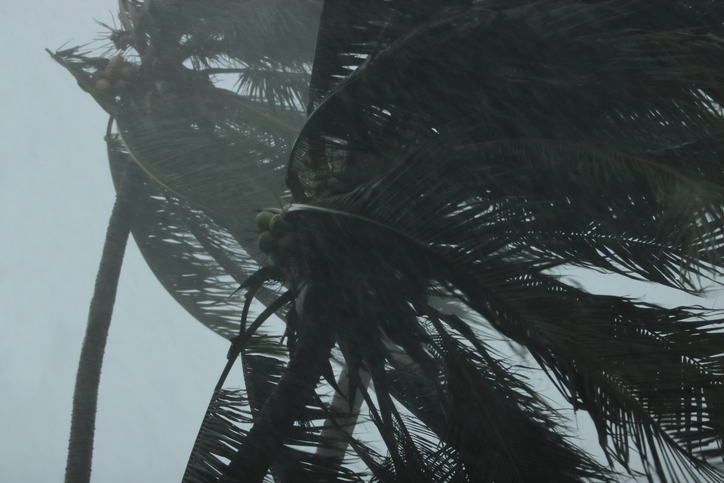 As we've seen with the destruction and devastation from Hurricanes Harvey and Irma, hurricane season is upon us and won't be ending any time soon. If you live in a coastline community or other danger zone for frequent hits by Mother Nature, being prepared is the ultimate key to keeping your family and home safe. Here are a few tips to keep in mind throughout the fall season in case another hurricane looms too close for comfort.
As we've seen with the destruction and devastation from Hurricanes Harvey and Irma, hurricane season is upon us and won't be ending any time soon. If you live in a coastline community or other danger zone for frequent hits by Mother Nature, being prepared is the ultimate key to keeping your family and home safe. Here are a few tips to keep in mind throughout the fall season in case another hurricane looms too close for comfort.
Visit FEMA's Flood Map Service Center
FEMA's website will show just how much of a risk your community is in and what type of flood insurance coverage your home will require. Always remember, standard homeowners insurance doesn't cover flooding and claims can get tricky when it comes to storm damage. Don't get left in the dark on this.
Assemble Emergency Kits
Think of everything you'd need to have if you're left without power for days. First aid supplies, a flashlight with plenty of batteries, 3-5 days worth of non-perishable foods, clean drinking water, any medications, and extra towels are just a few of the items you'll want to have ready in case a storm decides to come through. A battery-powered radio or TV isn't a bad idea either.
Secure Outside Belongings
Put away outside patio furniture, toys, bikes, chairs, and more. High winds will carry these items far, and quite possibly, they can cause more damage if they hit your house or a neighbor's. Items can also get swept up causing downed power lines. Turn off/store propane tanks and shut down utilities if instructed to do so by your community.
Consider Window Film
Professionally installed window film can help protect homes from the elements, mitigating the damage caused by shattered windows and flying shards of glass caused by high winds. Window film is a thin sheet of window coating, professionally and permanently installed that provides a thin membrane that holds shards of shattered glass together. This adds yet another layer of protection for you and your family.
Know the Best Evacuation Route
Contact your local American Red Cross to locate the shelter nearest you. Identify the safest route to get there. Check and see if your local emergency shelter allows animals and family pets. Hopefully you won't have to evacuate, but it's better to be safe than sorry. Knowing what to do and where to go in case of an emergency can make all the difference.
Protect Financial Documents
Proper identification and financial documents are crucial to begin the recovery process. Protect important documents in a safety deposit box, flash drive or external hard drive, or a waterproof storage container. Think personal IDs, banking info, insurance policies, ownership documents for your home and vehicles, and more. Having these on hand will make your post-storm efforts that much easier to manage.







